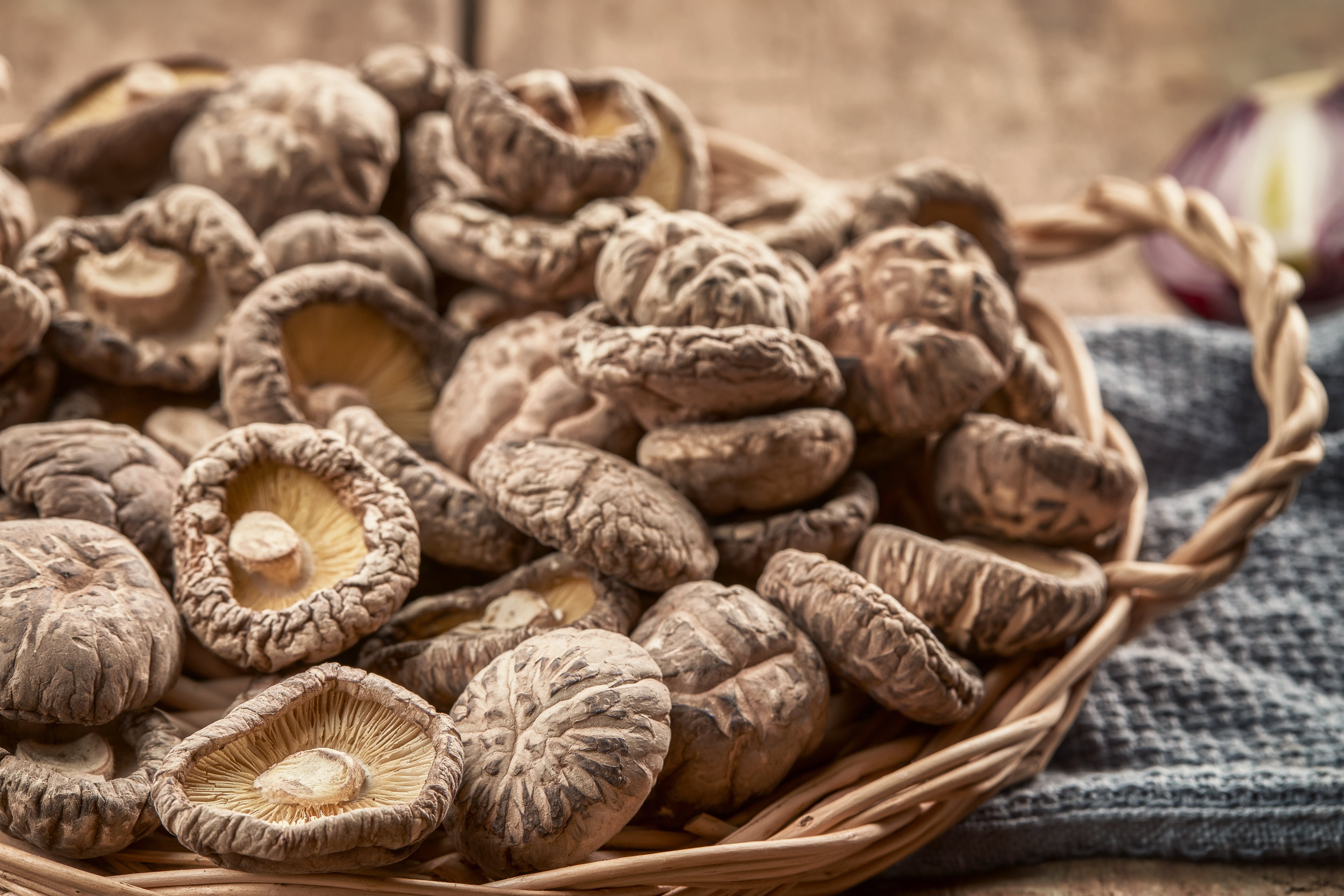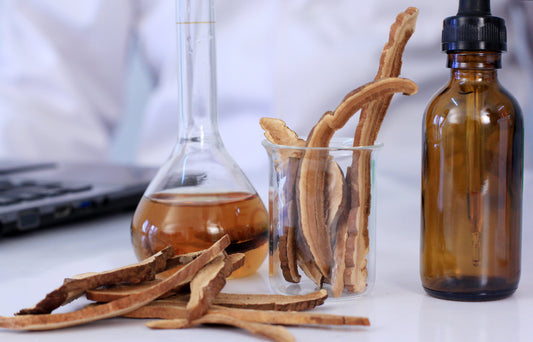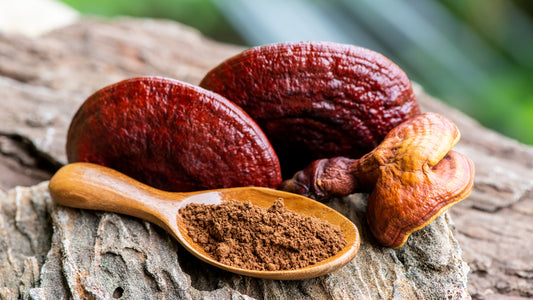While diet can contribute to illness, some foods can also nourish and support your body. Near the top of that list are a group of powerhouse fungi called functional mushrooms. These mushroom species possess many bioactive compounds that may provide surprising benefits for human health.
One of the strongest and most well-known components of these mushrooms is their polysaccharide content. In fact, mushroom polysaccharides are one of the powerful bioactive substances that have prompted health and wellness experts to focus on mushrooms as a nutraceutical—a food that has medicinal benefits. A look at some key facts may help you to decide whether functional mushrooms hold potential benefits for you.
What Are Polysaccharides?
Before you can undertake serious consideration of what polysaccharides do, it is essential to understand what they are. Saccharides are carbohydrates, chains of sugars made up of carbon, hydrogen, and oxygen atoms. The prefix placed in front of ‘saccharides’ indicates how many sugar molecules are linked together: mono=one, di=two, and poly means many.
Monosaccharides are simple sugars, and they are sweet. Glucose (the most common natural monosaccharide) and fructose (the fruit sugar) are examples. When two monosaccharides join to form a glycosidic bond, a disaccharide is created and a molecule of water is released. Lactose (milk sugar) and sucrose (table sugar) are common disaccharides.
Polysaccharides, also known as glycans, are chains of many sugars. Some have a storage function; others are structural. Three common polysaccharides include:
- Starch: the primary energy-storage molecule in plants
- Glycogen: the primary energy-storage molecule in animals
- Cellulose: a component of the cell walls of plants, algae, and some bacteria
Digestible polysaccharides provide an energy source when they are consumed. Indigestible polysaccharides provide dietary fiber that helps food pass through the digestive system and supports healthy gut flora.
Potential Health Benefits of Mushroom Polysaccharides
Mushrooms contain a variety of polysaccharides, including alpha- and beta-glucans. It is the beta-glucans that get much of the attention when considering the benefits of mushrooms. They contain many other bioactive ingredients, however, that also contribute to the potential health benefits. The benefits include:
Digestive/Gut Flora Support‡
Digestive enzymes are unable to break down many of the bonds holding polysaccharides together, which means that indigestible mushroom carbohydrates may act as prebiotics in the digestive tract. This fiber keeps food moving through the digestive system, but it also feeds the desirable microorganisms that contribute to a healthy gut microbiome.
Researchers investigated the effects of supplementing older adults with freeze-dried whole mushroom powder. They found benefits from the use of reishi, lion’s mane, shiitake, and maitake. These benefits to the gut microbiome included:
- Support for the growth of beneficial bacteria
- A decrease in harmful bacteria
- Promotion of microbiotic diversity
- An increase in the number of bacteria that produce short-chain fatty acids
The presence of beneficial bacteria in the intestines also contributes to a healthy immune system, healthy body weight, and metabolic health.‡
Metabolic and Heart Health Support‡
While mushroom polysaccharides may be the most well-known and well-researched compounds, research suggests that functional mushrooms contain additional bioactive substances that help to support metabolic health, including lectins, eritadenine, triterpenes, sterols, and phenolic compounds. With the potential to support lower blood pressure, and healthy cholesterol, triglycerides, and blood sugar levels, mushrooms can contribute to metabolic and heart health.‡
Immune Function Support‡
It has been proposed that mushroom beta-glucans serve as biological response modifiers that support and activate the body’s own immune response to fight off viral, bacterial, fungal, and
parasitic infections by stimulating both the innate and adaptive immune systems. With hundreds of studies completed and more research underway, beta-glucan polysaccharides have been proposed as a “nutritional fuel” for the immune system.‡
Energy and Mood Support‡
Polysaccharides from functional mushroom species, including lion’s mane and cordyceps, can help to combat fatigue. Lion’s mane has also demonstrated the capacity to reduce anxiousness and improve mood when used regularly.‡
Important Considerations for Choosing Functional Mushroom Products
Though mushroom polysaccharides get a lot of attention, there are many bioactive compounds in mushrooms that have the potential to provide health benefits. In some cases, the fruit body and the mycelium contain different compounds or different amounts of specific substances. For these reasons, a functional mushroom product that contains both mycelium and fruit body provides a more complete profile of beneficial, bioactive substances.
Another consideration involves the difference between whole mushroom powder and extracts. Though an extract may have been prepared to contain a standardized dose of beta-glucans, the extraction process eliminates other beneficial compounds. These may include:
- Phenolic and flavonoid compounds that act as antioxidants
- Immune-enhancing enzymes that support the body’s response to oxidative stress‡
- Other carbohydrates that contribute prebiotic fiber
Many scientists studying the effects of functional mushrooms recommend consuming mushroom biomass to capture powerful extracellular enzymes and other compounds that may hold benefits for the immune and other body systems.‡
Much of the beta-glucan polysaccharides are embedded in a matrix of chitin from the mushrooms’ cell walls. Steeping in hot water increases the bioavailability of hot-water-soluble, immunomodulating polysaccharides. For this reason, adding mushroom powder to a hot beverage such as coffee, tea, or broth allows for greater access to the benefits of its polysaccharide content.
[CTA]
‡These statements have not been evaluated by the Food and Drug Administration. Functional mushroom products are not intended to diagnose, treat, cure or prevent any disease.












